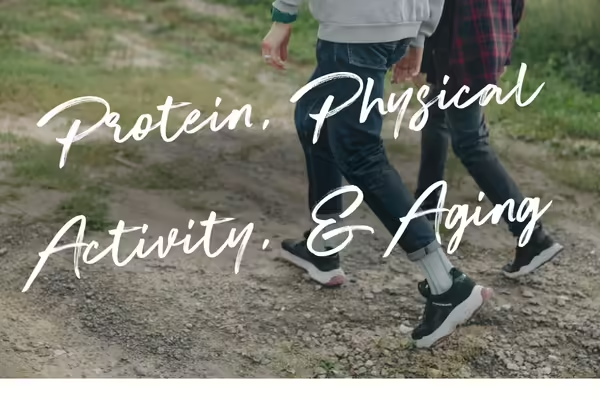
Did you know that proper nutrition and regular physical activity can slow the rate of muscle loss and support bone health, metabolism, and blood sugar control? To learn more, join University of Illinois Extension Nutrition and Wellness Educator, Diane Reinhold, at the Stephenson County Senior Resource Center, 206 E Stephenson St, Freeport, IL, on Thursday, September 18, from 1 to 3 p.m. for Protein, Physical Activity, and Aging: What You Need to Know. Diane will discuss how aging impacts muscle health and key nutrition tips and lifestyle strategies to help you stay strong and independent.
“I hope to see you there, because taking care of your health is one of the best ways to enjoy life to the fullest,” states U of I Extension Nutrition and Wellness Educator Diane Reinhold.
Don’t miss this opportunity to invest in your health and well-being. Reserve your spot today for Protein, Physical Activity, and Aging: What You Need to Know, by calling U of I Extension at (815) 235-4125 or visiting us online at https://go.illinois.edu/protein_activity_aging.
University of Illinois Extension provides equal opportunities in programs and employment. If you need reasonable accommodations to participate in this program, please call (815) 235-4125.
University of Illinois Extension develops educational programs, extends knowledge, and builds partnerships to support people, communities, and their environments as part of the state's land-grant institution. Extension serves as the leading public outreach effort for University of Illinois Urbana-Champaign and the College of Agricultural, Consumer and Environmental Sciences in all 102 Illinois counties through a network of 27 multi-county units and over 700 staff statewide. Extension’s mission is responsive to eight strategic priorities — community, economy, environment, food and agriculture, health, partnerships, technology and discovery, and workforce excellence — that are served through six program areas — 4-H youth development, agriculture and agribusiness, community and economic development, family and consumer science, integrated health disparities, and natural resources, environment, and energy.